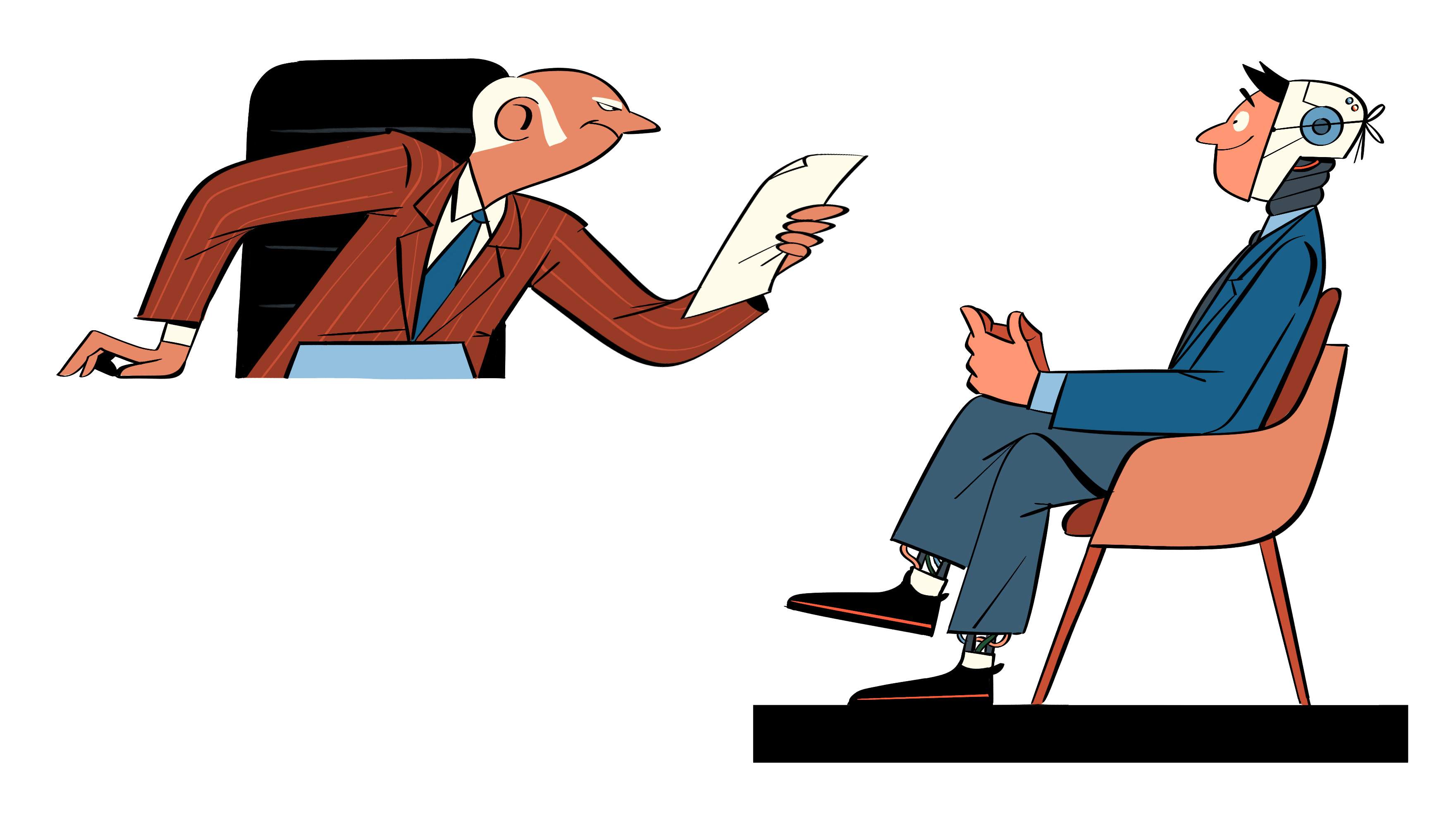Job interviews / Global
Keeping it real
Why meeting prospective employees in person yields the best results.
EMPLOYMENT — GLOBAL
Keeping it real
The face-to-face job interview is set to return, says Rob Crossan. That’s how to weed out AI-addicted applicants.

The job interview’s reputation is almost universally negative. But outside of TV sitcoms, are old-fashioned, in-person meetings with prospective employers ever that bad? The alternatives certainly are. As with so much else from the analogue world, we might already be suffering from the job interview’s increasingly endangered status. When UK-based recruitment consultants CV Genius surveyed 625 hiring managers on what they look for in a successful job application, 80 per cent responded that they couldn’t stand AI-generated applications. But there’s a trusty implement in the recruiter’s toolbox that can save us from hiring the wrong candidate: meeting them in person.
The consequences of letting someone get too far into the job-application process without having met them are obvious. Not only does an AI-generated CV and covering letter give the employer no idea whether the candidate’s self-professed acumen stands up to scrutiny but they also offer little indication of the personality type that could be about to enter your working life.
It’s time that we scotched the encroachment of AI into the hiring process by reviving mandatory, in-person job interviews and holding them as early into proceedings as possible. They might be stressful for many candidates and time-consuming for bosses but they also reduce the chances of hiring someone who has been dishonest in their application. They are also a vote in favour of that increasingly rare but precious element of the working day: human connection.
It doesn’t matter how gleaming someone’s written job application is, whether it’s bot-created or not. You simply can’t get a full measure of a candidate without spending some time together. Not only does the employer get an insight into an applicant’s acuity, style and sense of humour but the candidate, in return, gets to find out the same things about their prospective boss too.
AI has become worryingly adept at gaming written job applications. Generic questions such as, “What can you bring to this role?” and, “What do you consider your strengths and weaknesses?” are catnip to bots. To vet potential employees properly, all predictable elements of job questionnaires should be expunged. The requests should be so specific that AI will wither on the digital vine. It would be difficult for a candidate to use Chatgpt to answer a question such as, “Please could you illustrate an example, directly referencing your previous position, of when you solved a problem, detailing the specifics of the situation and giving us a step-by-step narrative of your response to it?”
AI is problematic in other, more disturbing ways. A University of Washington study published in 2023 tested three large-language AI models by making them evaluate hundreds of CVs against job descriptions. They found that the models favoured CVs from candidates with white-associated names 85 per cent of the time – and preferred other candidates to black men 100 per cent of the time.
The endgame of this reliance on AI will be horribly retrograde. Successful candidates will be chosen based on whether they are the most clued up on how to use the technology to their advantage. There is also the risk that bosses will simply become distrustful – and heartily bored – of the entire process and give the job to someone in their social network. Goodbye, meritocracy.
So, if we really want to hire the best candidate for the job, we need to tidy our office desk, find another chair, take a coffee order and usher in the first of those aspirant future employees. —


